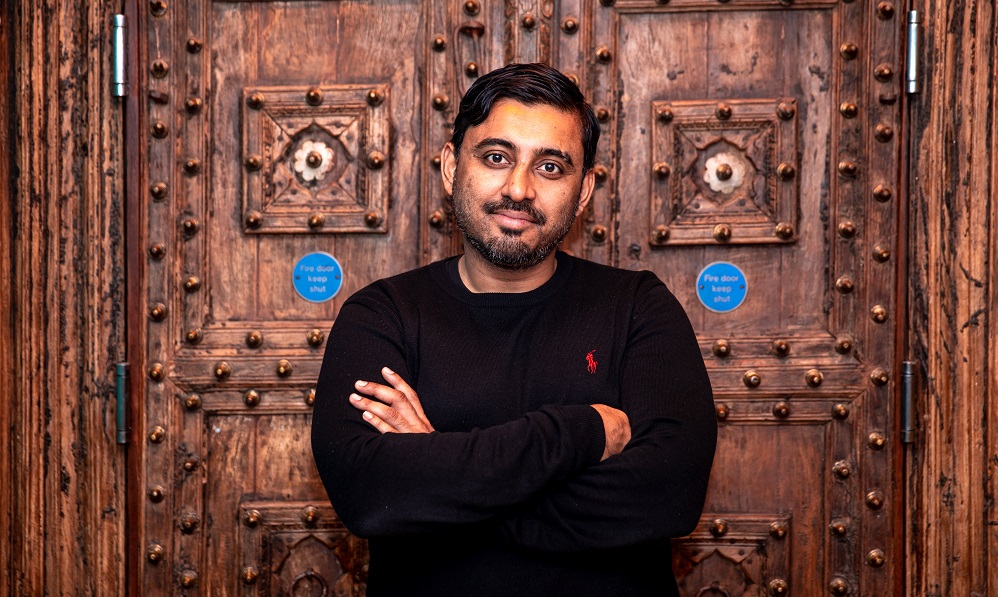
Interview: Abdul Shayek
Interview: Abdul Shayek
Abdul Shayek, artistic director of the only diverse-led theatre in SW London and Surrey, talks to us about his new shows, festivals and unique challenges.
For Abdul Shayek, one of the most promising theatre directors in London (and beyond), it all started in Stratford. “When I was in Year 10 everyone had to do a work placement. I was supposed to do mine at the vets. But it wasn’t something I wanted to do.” And he ended up walking around Stratford, looking for somewhere else when he came across Theatre Royal Stratford East. “I walked into the theatre – at the time it was having work done, so the builders directed me to the temporary offices down the road. I went into the office and asked: ‘what do you guys do?’ And they said, ‘we tell stories’. I thought it sounded cool. And so I didn’t end up working at the vets!” He ended up working with its youth arts department. “That’s when I went ‘oh, this is really interesting’. And that’s where my journey started.”
The journey took him all the way to Wales and back to London, where he now works as the artistic director of Tara Theatre.
In the theatrical landscape of SW London and Surrey, Tara Theatre is truly unique. Founded in 1977 in direct response to the murder of 17-year-old Gurdip Singh Chaggar, it never stayed away from creating complex, politically charged theatre. And this September, Tara and the Greenwich Docklands International Festival are taking people on a walk.
Not just a walk. Final Farewell, Tara’s recent brainchild, is a critically acclaimed immersive experience that embodies theatre’s healing and transformative powers. Says Abdul: “We are asking our audience to go on a walk and listen to the stories of people who passed away due to or during Covid.”
It was a merge of the social and the personal. “It was about three elements coming together,” Abdul explains. “The first one was the number of people dying from Covid. The second, the lack of ceremony and ritual because people couldn’t get the send-off they deserved. And then on a very personal level, it was about me going on walks and listening to a lot of podcasts. And I just thought that it would be interesting to hear about people who are no longer here.”
Abdul became Tara’s artistic director in the midst of the pandemic. He’d lived in Wales for a while where – disappointed with the lack of creative opportunities for artists of colour – he established and led the theatre company Fio. “I think Mountaintop by Katori Hall [which he directed with Fio in 2016] is my favourite show I’ve done so far. It was a really beautiful piece. Stunning, really strong writing.” This fictional depiction of Martin Luther King’s last night before his assassination received rave reviews, as did other shows directed by Abdul.
In 2020, he was back in London to take over the position at Tara. “I think the challenge was about kick-starting a brand that already exists, with its reach and the connection to diverse communities, particularly the South Asian diaspora. For example, Tooting’s really diverse and has a huge South Asian community. Tara has a brand and an appeal which then leads to easier conversations with potential partners, funders and stakeholders.” But of course, it was far from easy – especially in 2020.
And yet, Tara prevailed. “Theatre has always been a very political thing,” says Abdul. “And Tara in particular has been very political from the get-go having been set up in response to the racist murder of a young South Asian man. And when I got the job, the world was dealing with another racist killing of a Black man across the Atlantic. We really try to make sure that the work we make encompasses and responds to all of these challenges. And that’s what we’ve created as a new brand – activism that really is at the heart of the organisation, and repackaging it so that the contemporary audience can really connect with it.”
In addition to Final Farewell, Tara has a lot of fascinating productions in store across different creative outlets. Silence, co-produced with Donmar Warehouse, is about the partition of India. Amma, with support from the National Theatre Immersive Storytelling Studio, is a virtual reality experience where Bangladeshi women share their experiences of the War of Independence. They’re even working with English National Opera to create a night to explore opera and the challenges around diversity. “In essence, everything that we’re doing really asks questions about where we are as a sector, and really tries to give space to artists and individuals to experiment and play,” admits Abdul.
“I think it’s all about stories that capture communities and have integrity and authenticity at the heart of them. And stories that really go beyond just the obvious and capture things about the psychology and emotions of people and communities and characters.”






